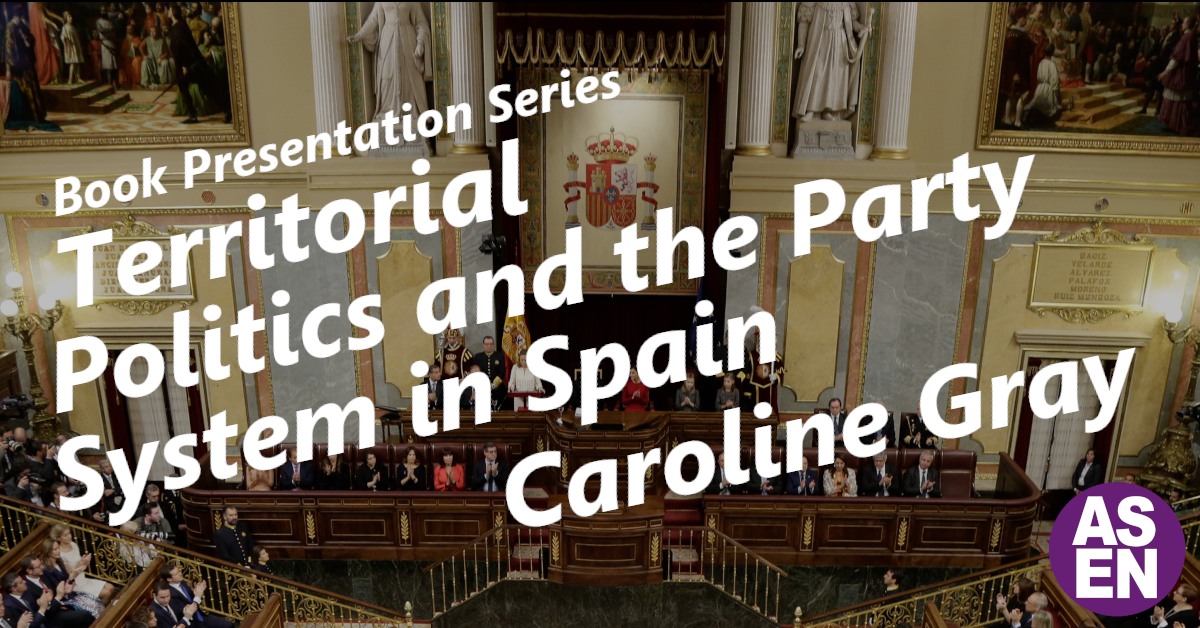Events
Territorial Politics and the Party System in Spain

Territorial Politics and the Party System in Spain
A recording of this event is available for members.
Caroline Gray sits down with Javier Carbonell to discuss her new book, Territorial Politics and the Party System in Spain. Join us on Facebook Live or YouTube Live from 1730UTC on December 17th. Click here to check the time in your city.
About Caroline
Lecturer in Politics and Spanish at Aston University. She specialises in the politics and culture of Spain, focusing on nationalist movements and political decentralisation, as well as the political consequences of the global financial crisis. Having studied Spanish literature as a Modern Languages undergraduate at the University of Oxford, followed later by a PhD in Politics on nationalist movements in Spain, she is particularly interested in how an interdisciplinary approach to the study of Spain can deepen our understanding of the country.
About the book
Caroline’s book, Territorial Politics and the Party System in Spain, is published by Routledge.
Across Western Europe, the global financial crisis of 2008 and its aftermath not only brought economic havoc but also, in turn, intense political upheaval. Many of the political manifestations of the crisis seen in other Western and especially Southern European countries also hit Spain, where challenger parties caused unprecedented parliamentary fragmentation, resulting in four general elections in under four years from 2015 onwards. Yet Spain, a decentralised state where extensive powers are devolved to 17 regions known as ‘autonomous communities’, also stood out from its neighbours due to the importance of the territorial dimension of politics in shaping the political expression of the crisis.
This book explains how and why the territorial dimension of politics contributed to shaping party system continuity and change in Spain in the aftermath of the financial crisis, with a particular focus on party behaviour. The territorial dimension encompasses the demands for ever greater autonomy or even sovereignty coming from certain parties within the historic regions of the Basque Country, Catalonia and, to a lesser extent, Galicia. It also encompasses where these historic regions sit within the broader dynamics of intergovernmental relations across Spain’s 17 autonomous communities in total, and how these dynamics contribute to shaping party strategies and behaviour in Spain. Such features became particularly salient in the aftermath of the financial crisis since this coincided with, and indeed accelerated, the rise of the independence movement in Catalonia.
Follow Caroline on Twitter at @carolinemgray.
